How to Identify and Fix Common Electrical Problems in Your Home
Electrical issues in your home can range from minor annoyances to serious hazards. As a homeowner, it’s important to understand some of the most common electrical problems you may encounter and how to address them quickly and safely. Whether you need electrical repairs, an emergency electrician, or a complete electrical installation, this guide will help you diagnose the issue and know when it’s time to call a professional.
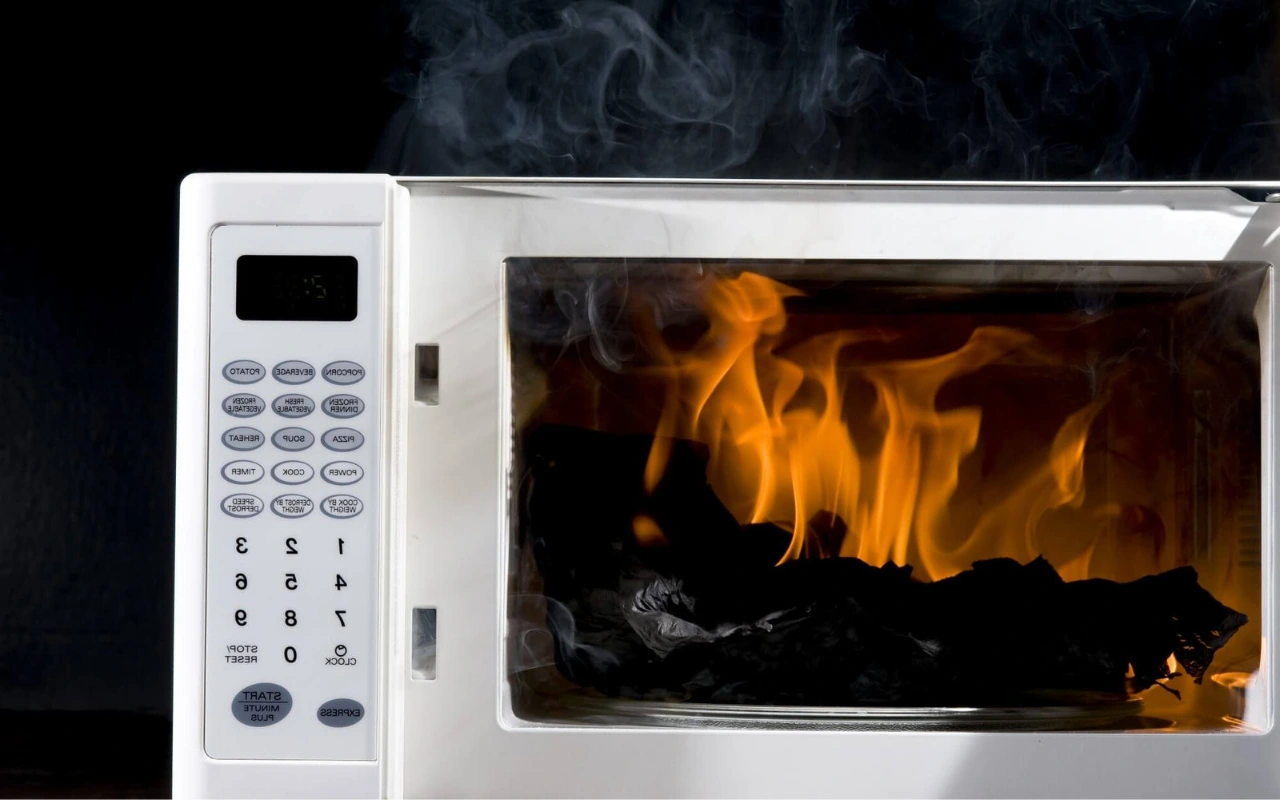
In this blog post, we'll discuss some of the most frequent electrical problems, provide tips on how to identify them, and offer advice on simple fixes. If the problem seems more complex, we’ll explain when it’s best to call in a professional electrician to ensure your home remains safe and your electrical systems are functioning properly.
1. Flickering Lights
Flickering lights are one of the most common and annoying electrical problems. This issue can be caused by several factors, and while it might be tempting to ignore it, it’s important to investigate as it could indicate an underlying issue.
What Causes Flickering Lights?
💡 Loose Bulb or Connection: If your light bulb is loose, it may flicker when the circuit isn’t fully connected. Tightening the bulb or checking its connection can often resolve the issue.
💡 Overloaded Circuit: An overloaded circuit can cause lights to flicker, particularly when multiple devices are running on the same circuit. If this happens, you may need to distribute the load across different circuits.
💡 Faulty Wiring: Old or damaged wiring in your walls may be responsible for flickering lights.This is a serious issue that requires professional help to fix.
💡 Circuit Breaker Issues: If your circuit breaker is malfunctioning, it could be causing the lights to flicker. A breaker that doesn't trip when it should can overheat, leading to flickering lights.

What to Do
If tightening the bulb or moving it to a different socket doesn’t solve the issue, it’s a good idea to consult an emergency electrician. Faulty wiring or circuit issues may be present and could lead to more serious problems, including fire hazards.
2. Tripping Circuit Breakers
Circuit breakers are designed to protect your home’s electrical system by cutting off power if there’s an overload or short circuit. However, if your circuit breaker trips frequently, it may be a sign of an underlying electrical issue.
What Causes a Tripping Circuit Breaker?
💡 Overloaded Circuit:
When too many devices are plugged into a single circuit, it can overload the system, causing the breaker to trip.
💡 Short Circuit:
A short circuit happens when a hot wire comes into contact with a neutral wire or ground. This can cause sparks or even fires, so if you suspect a short circuit, call a professional immediately.
💡Ground Fault:
A ground fault occurs when a hot wire touches the ground wire, often due to faulty appliances or wiring issues.
💡Faulty Breaker:
Sometimes, the breaker itself is faulty and trips unnecessarily. This might require a replacement from a qualified electrician.
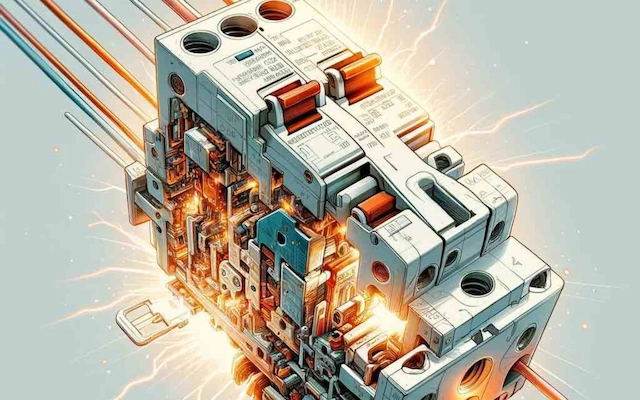
What to Do
If the breaker continues to trip after you've unplugged devices and tried resetting it, you may need a professional assessment. A licensed electrician can diagnose whether the problem is a result of a circuit overload, faulty wiring, or a damaged breaker.
3. Sockets Not Working
There’s nothing more frustrating than an electrical socket that won’t work. This can disrupt your daily life, especially when you rely on it for charging devices or running appliances.
What Causes Sockets Not To Work?
💡 Tripped GFCI Sockets:
Ground Fault Circuit Interrupter (GFCI) sockets, typically found in kitchens, bathrooms, and garages, can trip if there’s a ground fault or power surge. If this happens, you simply need to press the reset button on the socket.
💡 Loose Wiring:
Over time, the wiring inside your sockets can become loose, leading to a lack of power. This is something that requires a professional to inspect and repair.
💡 Tripped Circuit Breaker:
As mentioned earlier, a tripped breaker could cut off power to specific sockets or circuits, making them stop working.
💡 Burnt-Out Socket:
In some cases, sockets can burn out due to faulty wiring or overheating. This is a serious concern and should be addressed by a qualified electrician.
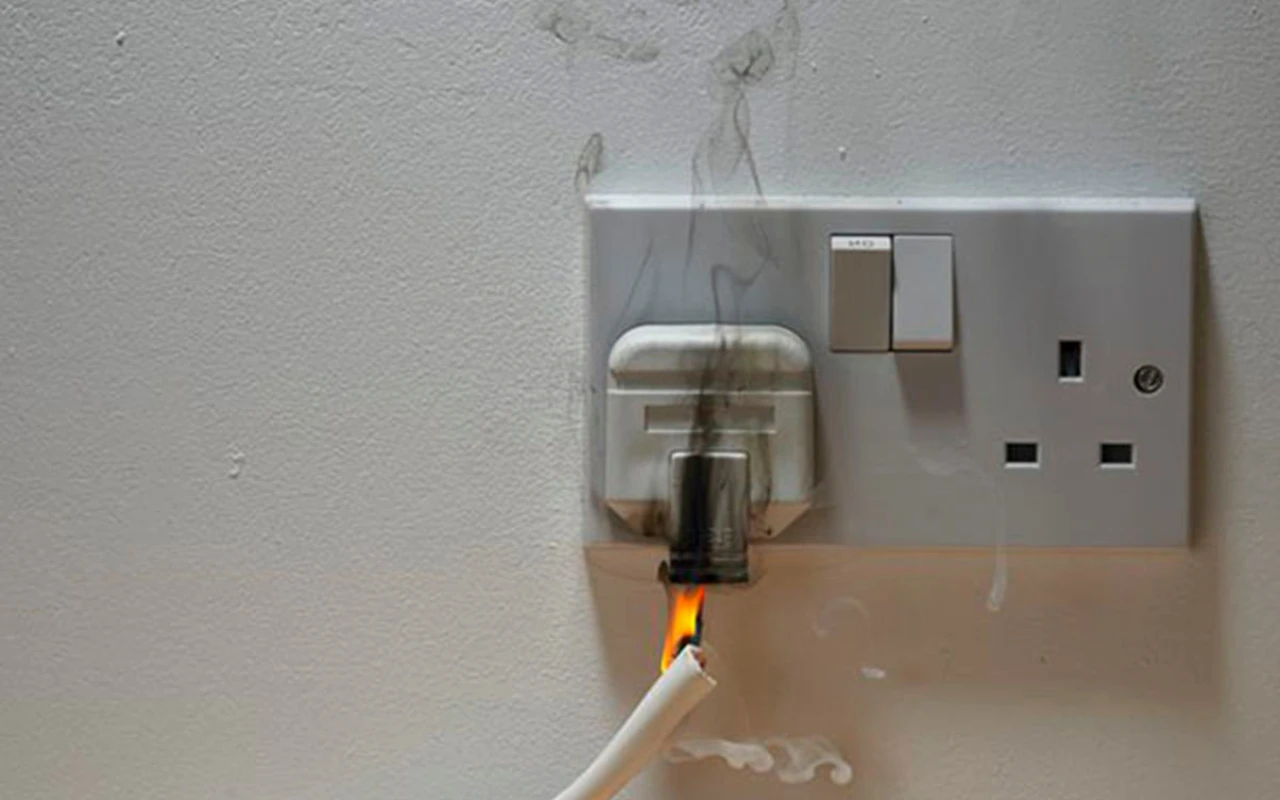
What to Do
For simple issues like a tripped GFCI socket, resetting the socket can often resolve the problem. However, if the issue persists, it’s a good idea to consult a local electrician. If wiring or the socket itself is faulty, it’s crucial to have it professionally replaced to avoid any further issues or safety hazards.
4. Burning Smell from Electrical Appliances
A burning smell coming from an electrical appliance or socket should never be ignored. It could be a sign of overheating, a short circuit, or faulty wiring, and it could pose a serious fire risk.
What Causes A Burning Smell?
💡 Overheating Appliance:
Appliances can overheat if they’re plugged in too long, especially if they have faulty wiring or are malfunctioning.
💡 Wiring:
Over time, wiring can become damaged, leading to overheating, sparks, or even fire. If you notice a burning smell from a socket or switch, it’s time to have the wiring inspected.
💡 Electrical Short Circuit:
A short circuit can cause sparks and heat buildup, leading to a burning smell. This is a serious issue that should be handled by a professional immediately.

What to Do
If you notice a burning smell, immediately unplug the appliance and turn off the circuit breaker. If the smell is coming from a socket or switch, stop using it and call a licensed electrician to inspect the system. A burning smell indicates something is wrong, and it's essential to address it quickly.
5. High Energy Bills Due to Electrical Issues
If you’ve noticed a sharp increase in your energy bills, it could be due to electrical inefficiencies in your home. Some electrical problems can cause your home to consume more power than necessary.
What Causes High Energy Consumption?
💡 Outdated Appliances:
Older appliances, especially those that aren’t energy-efficient, can draw more power than newer, more efficient models. Replacing these with modern, energy-efficient appliances can reduce your energy usage.
💡 Wiring Issues:
Faulty or damaged wiring can cause a short circuit or leakage of electricity, leading to higher power consumption. This can also be a fire hazard, so it’s important to get the wiring inspected and repaired.
💡 Inefficient Lighting:
Traditional incandescent light bulbs use much more energy than energy-efficient alternatives like LED bulbs. Switching to LED lighting can lower your electricity consumption significantly.
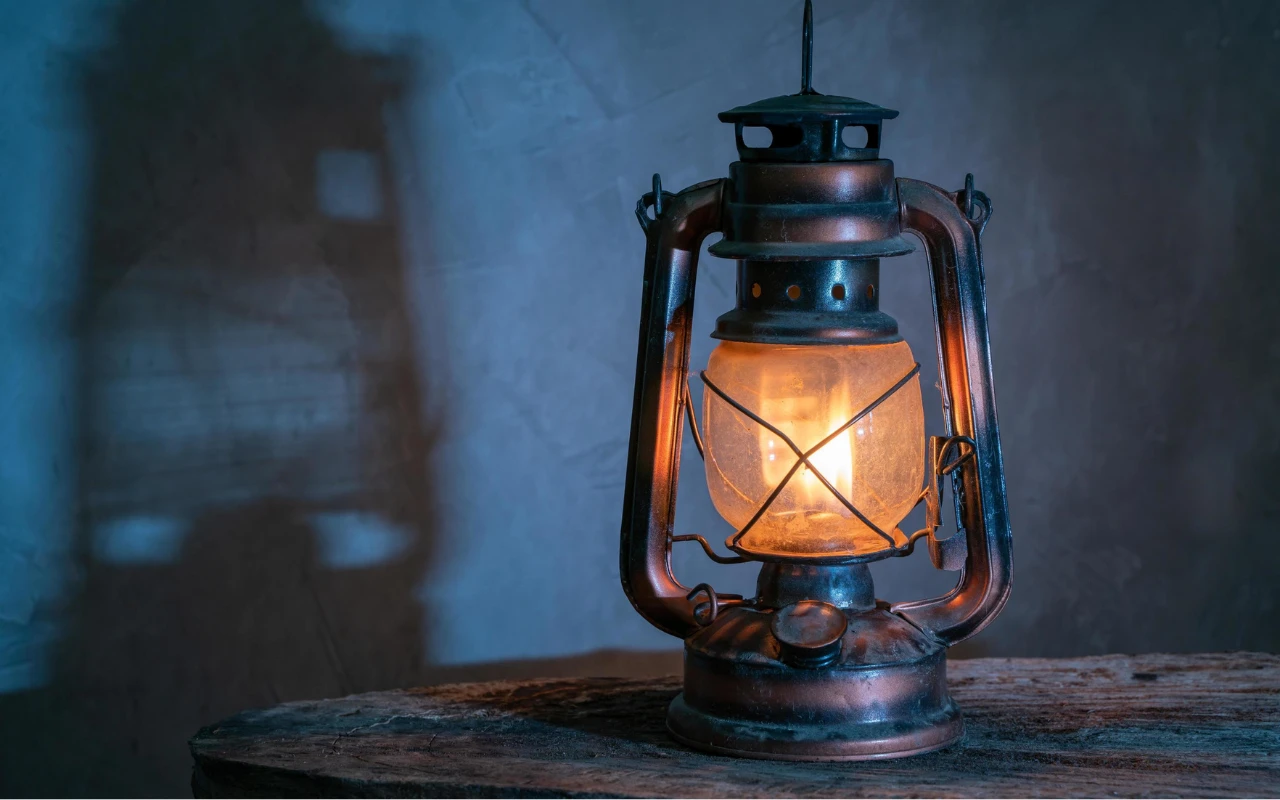
What to Do
Start by replacing older, inefficient appliances with energy-efficient models. For wiring issues, consult an experienced electrician to inspect and repair your system. An EICR can also help identify if your electrical system is wasting power due to faulty connections.
When to Call an Electrician
While many of these issues can be resolved with some basic troubleshooting, there are times when you should call in a professional. Some problems, such as faulty wiring, short circuits, or issues with the circuit breaker, require an experienced electrician to ensure safety and compliance with electrical codes.
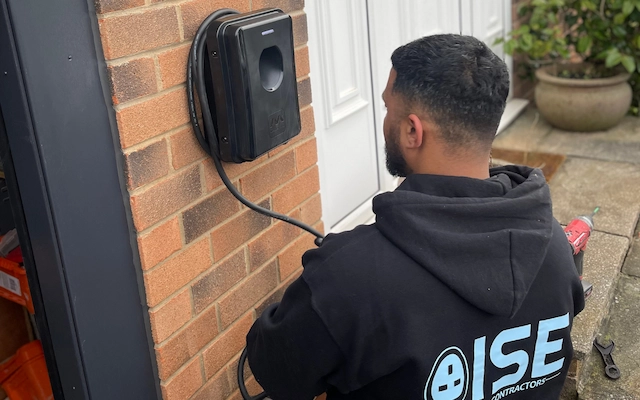
If you’re in need of electrical repairs, emergency call-outs, or any of the services mentioned above, don’t hesitate to get in touch with ISE Contractors. We provide reliable, expert services for homeowners in Batley, Dewsbury, and Morley. From minor repairs to full electrical installations, our team is here to help.
Conclusion
Electrical issues are a common part of homeownership, but with the right knowledge, you can address simple problems yourself and know when to call in a professional. Remember, if you ever feel unsure or face a complex electrical issue, it’s always safer to consult a qualified electrician.
At ISE Contractors, we’re here to assist with all your electrical needs, from basic electrical repairs to full installations and upgrades. Contact us today for a free quote and ensure the safety and efficiency of your electrical system.

Why Choose ISE Contractors For Your Electrical Needs?
At ISE Contractors, we’re committed to providing top-notch electrical services that make your home or business safe and efficient. From expert advice to dependable installations and repairs, we’re here to deliver solutions that meet your needs and exceed your expectations.
Contact us today to get started with your electrical project!

Written By: Ash Anderson
How to Identify and Fix Common Electrical Problems in Your Home

Electrical issues in your home can range from minor annoyances to serious hazards. As a homeowner, it’s important to understand some of the most common electrical problems you may encounter and how to address them quickly and safely. Whether you need electrical repairs, an emergency electrician, or a complete electrical installation, this guide will help you diagnose the issue and know when it’s time to call a professional.
In this blog post, we'll discuss some of the most frequent electrical problems, provide tips on how to identify them, and offer advice on simple fixes. If the problem seems more complex, we’ll explain when it’s best to call in a professional electrician to ensure your home remains safe and your electrical systems are functioning properly.
1. Flickering Lights
Flickering lights are one of the most common and annoying electrical problems. This issue can be caused by several factors, and while it might be tempting to ignore it, it’s important to investigate as it could indicate an underlying issue.

What Causes Flickering Lights?
💡 Loose Bulb or Connection:
If your light bulb is loose, it may flicker when the circuit isn’t fully connected. Tightening the bulb or checking its connection can often resolve the issue.
💡 Overloaded Circuit:
An overloaded circuit can cause lights to flicker, particularly when multiple devices are running on the same circuit. If this happens, you may need to distribute the load across different circuits.
💡 Faulty Wiring:
Old or damaged wiring in your walls may be responsible for flickering lights.This is a serious issue that requires professional help to fix.
💡 Circuit Breaker Issues:
If your circuit breaker is malfunctioning, it could be causing the lights to flicker. A breaker that doesn't trip when it should can overheat, leading to flickering lights.
What to Do
If tightening the bulb or moving it to a different socket doesn’t solve the issue, it’s a good idea to consult an emergency electrician. Faulty wiring or circuit issues may be present and could lead to more serious problems, including fire hazards.
2. Tripping Circuit Breakers
Circuit breakers are designed to protect your home’s electrical system by cutting off power if there’s an overload or short circuit. However, if your circuit breaker trips frequently, it may be a sign of an underlying electrical issue.

What Causes a Tripping Circuit Breaker?
💡 Overloaded Circuit:
When too many devices are plugged into a single circuit, it can overload the system, causing the breaker to trip.
💡 Short Circuit:
A short circuit happens when a hot wire comes into contact with a neutral wire or ground. This can cause sparks or even fires, so if you suspect a short circuit, call a professional immediately.
💡 Ground Fault:
A ground fault occurs when a hot wire touches the ground wire, often due to faulty appliances or wiring issues.
💡 Faulty Breaker:
Sometimes, the breaker itself is faulty and trips unnecessarily. This might require a replacement from a qualified electrician.
What to Do
If the breaker continues to trip after you've unplugged devices and tried resetting it, you may need a professional assessment. A licensed electrician can diagnose whether the problem is a result of a circuit overload, faulty wiring, or a damaged breaker.
3. Sockets Not Working
There’s nothing more frustrating than an electrical socket that won’t work. This can disrupt your daily life, especially when you rely on it for charging devices or running appliances.

What Causes Sockets Not to Work?
💡 Tripped GFCI Sockets:
Ground Fault Circuit Interrupter (GFCI) sockets, typically found in kitchens, bathrooms, and garages, can trip if there’s a ground fault or power surge. If this happens, you simply need to press the reset button on the socket.
💡 Loose Wiring:
Over time, the wiring inside your sockets can become loose, leading to a lack of power. This is something that requires a professional to inspect and repair.
💡 Tripped Circuit Breaker:
As mentioned earlier, a tripped breaker could cut off power to specific sockets or circuits, making them stop working.
💡 Burnt-Out Socket:
In some cases, sockets can burn out due to faulty wiring or overheating. This is a serious concern and should be addressed by a qualified electrician.
What to Do
For simple issues like a tripped GFCI socket, resetting the socket can often resolve the problem. However, if the issue persists, it’s a good idea to consult a local electrician. If wiring or the socket itself is faulty, it’s crucial to have it professionally replaced to avoid any further issues or safety hazards.
4. Burning Smell from Electrical Appliances
A burning smell coming from an electrical appliance or socket should never be ignored. It could be a sign of overheating, a short circuit, or faulty wiring, and it could pose a serious fire risk.

What Causes A Burning Smell?
💡 Overheating Appliance:
Appliances can overheat if they’re plugged in too long, especially if they have faulty wiring or are malfunctioning.Faulty
💡 Wiring:
Over time, wiring can become damaged, leading to overheating, sparks, or even fire. If you notice a burning smell from a socket or switch, it’s time to have the wiring inspected.
💡 Electrical Short Circuit:
A short circuit can cause sparks and heat buildup, leading to a burning smell. This is a serious issue that should be handled by a professional immediately.
What to Do
If you notice a burning smell, immediately unplug the appliance and turn off the circuit breaker. If the smell is coming from a
socket or switch, stop using it and call a licensed electrician to inspect the system. A burning smell indicates something is wrong, and it's essential to address it quickly.
5. High Energy Bills Due to Electrical Issues
If you’ve noticed a sharp increase in your energy bills, it could be due to electrical inefficiencies in your home. Some electrical problems can cause your home to consume more power than necessary.

What Causes High Energy Consumption?
💡 Outdated Appliances:
Older appliances, especially those that aren’t energy-efficient, can draw more power than newer, more efficient models. Replacing these with modern, energy-efficient appliances can reduce your energy usage.
💡 Wiring Issues:
Faulty or damaged wiring can cause a short circuit or leakage of electricity, leading to higher power consumption. This can also be a fire hazard, so it’s important to get the wiring inspected and repaired.
💡 Inefficient Lighting:
Traditional incandescent light bulbs use much more energy than energy-efficient alternatives like LED bulbs. Switching to LED lighting can lower your electricity consumption significantly.
What to Do
Start by replacing older, inefficient appliances with energy-efficient models. For wiring issues, consult an experienced electrician to inspect and repair your system. An EICR can also help identify if your electrical system is wasting power due to faulty connections.
When to Call an Electrician
While many of these issues can be resolved with some basic troubleshooting, there are times when you should call in a professional. Some problems, such as faulty wiring, short circuits, or issues with the circuit breaker, require an experienced electrician to ensure safety and compliance with electrical codes.

If you’re in need of electrical repairs, emergency call-outs, or any of the services mentioned above, don’t hesitate to get in touch with ISE Contractors. We provide reliable, expert services for homeowners in Batley, Dewsbury, and Morley. From minor repairs to full electrical installations, our team is here to help.
Conclusion
Electrical issues are a common part of homeownership, but with the right knowledge, you can address simple problems yourself and know when to call in a professional. Remember, if you ever feel unsure or face a complex electrical issue, it’s always safer to consult a qualified
electrician.

At ISE Contractors, we’re here to assist with all your electrical needs, from basic electrical repairs to full installations and upgrades. Contact us today for a free quote and ensure the safety and efficiency of your electrical system.
Why Choose ISE Contractors For Your Electrical Needs?
At ISE Contractors, we’re committed to providing top-notch electrical services that make your home or business safe and efficient. From expert advice to dependable installations and repairs, we’re here to deliver solutions that meet your needs and exceed your expectations.
Contact us today to get started with your electrical project!
Contact Us
Service Hours
Social Media
Sunday: Closed
Saturday: 8:00 AM - 3:00 PM
Monday - Friday: 8:00 AM - 6:00 PM

Written By: Ash Anderson

Service Hours
Monday - Friday: 8:00 AM - 6:00 PM
Saturday: 8:00 AM - 3:00 PM
Sunday: Closed
2025 | ISE Contractors | Sitemap